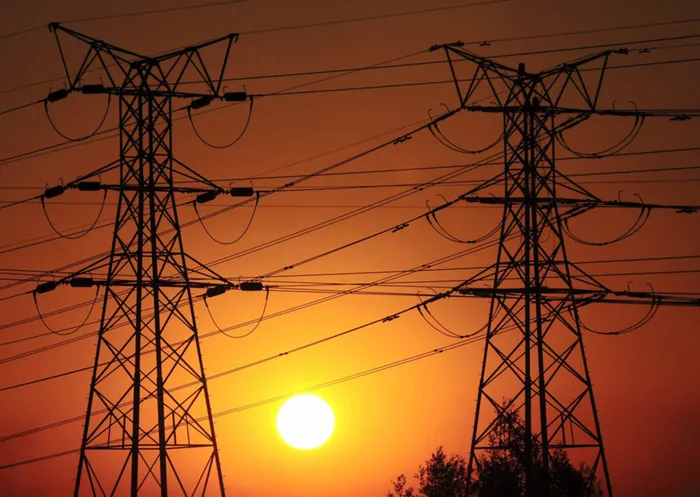Industry urges clarity on Eskom tariffs as debate over electricity pricing intensifies
ENERGY

150711. Sunset in Crownmines, Johannesburg. The picture can be used for Eskom energy supply crisis. Picture: Dumisani Sibeko The Energy Intensive Users Group (EIUG) on Wednesday said the power utility now faces challenges in containing operational and primary energy costs, which are projected to rise between 5% and 15% in the 2025/26 financial year, even as electricity sales volumes are expected to decline by 2–3%.
Image: Dumisani Sibeko
Banele Ginidza
The Energy Intensive Users Group (EIUG) has warned that ongoing uncertainty about South Africa’s electricity tariff path remains a key obstacle to growth, industrial stability and investor confidence.
The caution comes after Eskom on Tuesday reported a R16 billion profit for the 2024/25 financial year, a dramatic turnaround from a R55bn loss the previous year.
The EIUG on Wednesday said the power utility now faces challenges in containing operational and primary energy costs, which are projected to rise between 5% and 15% in the 2025/26 financial year, even as electricity sales volumes are expected to decline by 2–3%.
Fanele Mondi, CEO of the EIUG, said the group welcomed assurances from Electricity and Energy Minister Kgosientsho Ramokgopa that current market reforms will not be reversed.
"The announcement by Eskom CEO, Dan Marokane, to stay litigation with Nersa on trading licenses to allow for consultation and dialogue is also encouraging," Mondi said.
"The EIUG remains committed to advocating for affordable and sustainable electricity pricing, energy security, quality of supply, and decarbonisation of energy systems."
Mondi said the commitment by Eskom and its shareholders to maintain annual electricity increases within single-digit percentages was encouraging, though further improvement was needed.
"An inflation-linked increase commitment would have been even more appreciated," Mondi said.
This was echoed by the Congress of South African Trade Unions (Cosatu), which said that Eskom’s continued dependence on above-inflation tariff hikes has seen thousands of industrial workers sent to the unemployment queue as electricity becomes increasingly unaffordable.
"Whilst commending this achievement, including the announcement of Eskom’s first profit in eight years, it is not out of danger yet," said Matthew Parks, Cosatu's Parliamentary Coordinator.
"More support must be provided to Eskom and municipalities to overcome its still precarious fault lines. Municipal debt owed to Eskom has doubled in the past few years to over R95bn."
Meanwhile, Marokane on Tuesday said the revision of the electricity pricing policy will highlight the entity's support for the poor, its strategy for shoring up economic growth by supporting industrial growth with affordable electricity, and also ensuring the utility's own sustainability.
"Hopefully, once we start having discussions about who gets what price we will look at it from a mentality of what's good for the country," Marokane said.
"I will not comment much on the ferrochrome, suffice to say that the ferrochrome packages are an area that needs attention. We are attending to it and it will be appropriate that we allow that work to unfold and we will make the announcement post appropriate governance structure."
Ramokgopa said Eskom's team has made it possible to expand the scope of conversation with the energy availability factor (EAF) just about averaging 70%, and that there were additional electrons to lubricate or catalyse the economy.
"What we know about the industry is that retrenchments are imminent, we've had discussions with them, we know they are decimated by competition from the East, we have an advantage in that we have 82% of the known chrome ore deposits in the country," Ramokgopa said.
"The one area they are pulverised in is the cost of the electricity, which constitutes an average of about 45% of the cost, their main competitors are almost paying a third of what they are charged here."
Ramakgopa also said there had been discussions with lead players, and that they had found each other and had a sense of what the number is though it still had to go through the governance processes at Eskom and then back to Cabinet.
"Invariaby, the discount must be socialised somewhere so there is no free lunch. We are just really stemming the repercussions of these smelters closing," he said.
"That's the position we have as a policyholder but the commitment we are making is that we are maintaining a single-digit tariff increase. What this says on pricing configurations is something we will resolve internally. Otherwise, there's a greater cost to the economy of doing nothing."
BUSINESS REPORT